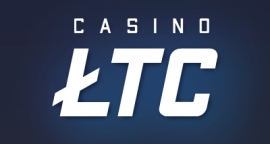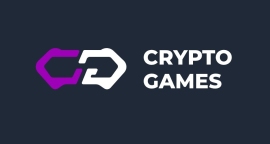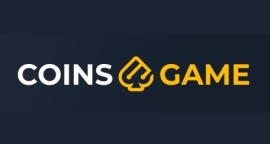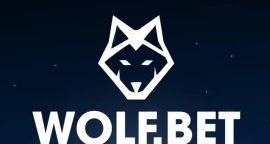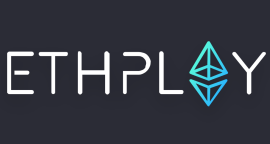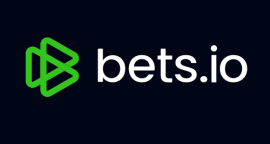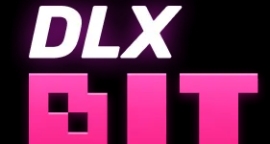Best Rated Decentralized Casinos
-
FEATUREFully AnonymousFully Anonymous Lightning Fast Withdrawal Games Decent withdrawal limitsLTC CasinoPlay Now
-
WELCOME PACKAGE200 % up to 20000 USDTWithout Verification Diverse Cryptocurrency Support Provably Fair Gaming Quick TransactionsCryptoGames CasinoPlay Now
-
SIGN UP BONUS100% + 100 Free SpinsA substantial selection of games from top-tier providers. Attractive welcome bonuses and a variety of ongoing promotions. A user-friendly website with a robust security framework. Diverse payment options catering to both fiat and cryptocurrency users.Coins GamePlay Now
-
FEATUREFully AnonymousFast withdrawals Casino games and sportsbook 24/7 live chat support Exclusive BonusesWolf.bet CasinoPlay Now
-
1ST DEPOSIT BONUS180% up to 1 BTCAll Crypto Very low house edge Attractive original games VIP clubBCGame CasinoPlay Now
-
FEATURENo VerificationNo KYC gameplay and transactions All GEOs, VPN-friendly Instant withdrawals in crypto Extensive selection of gamesEthPlay CasinoPlay Now
-
FEATUREDaily Cashback 10-20%Fast withdrawals Decent withdrawal limits Good variety of games No KYCBets.io CasinoPlay Now
-
FEATUREFully AnonymousFully Crypto No KYC Games SelectionDLXbit CasinoPlay Now
What are Decentralized Casinos and how they work?
Decentralized casinos, also known as blockchain casinos, DeFi (Decentralized Finance) are online gambling platforms that operate on blockchain technology. These platforms are considered "decentralized" because they don't rely on a central authority or organization to manage or regulate their operations. This attribute aims to make the platform more transparent, reliable, and less susceptible to fraud.
The decentralized nature of these casinos means that they use cryptocurrencies like Bitcoin, Ethereum, or their own unique tokens for transactions. A few notable characteristics of decentralized casinos are.
Transparency. These platforms leverage smart contracts to conduct games and transactions on the blockchain, which is an open ledger everyone can inspect.
Player Anonymity. Players can make transactions without revealing their identity, unless the platform requires KYC (Know Your Customer) checks.
Reduced Fees and Instant transactions. Traditional online casinos often require high fees and time for the transactions due to their centralized banking methods.
Ownership & Interoperability. In decentralized casinos, players might have the chance to own part of the casino through tokenization or engage with items (NFTs - Non-fungible tokens) that may be compatible with other games or platforms.
Provable Fairness. Decentralized casinos often allow players to check and validate the fairness of the games themselves due to the nature of blockchain technology. This is usually through cryptographic hashes and open source algorithms.
One notable feature of DeFi casinos is that they often combine finance and gambling elements, allowing games that also have investment or yield mechanisms, or platforms that distribute profits back to holders of their tokens.
There are still regulatory challenges and issues around decentralised casinos, such as legal uncertainties, potential for misuse, and volatile cryptocurrency values.
Advantages of DeFi Casinos
DeFi (Decentralized Finance) Casinos provide several advantages:
- Transparency and Trustworthiness: DeFi casinos operate on blockchain technology, which provides an open and transparent ledger for all transactions.
- Provable Fairness: Blockchain tech and smart contracts add a feature known as provable fairness. Cryptographic technology allows players to verify that game outcomes are honest and haven't been manipulated.
- Lower Fees: Traditional online casinos often have high fees for various transactions, but DeFi casinos can substantially lower these costs due to their decentralized nature and use of blockchain technology.
- Accessibility and Inclusion: DeFi casinos can provide services without regard to geographical location. Traditional banking systems often exclude some regions or make access difficult, but anyone with an internet connection can likely participate in a DeFi casino, given they comply with their particular jurisdiction's regulation concerning online gambling.
- Ownership and Governance: DeFi casinos may use governance tokens to give players and contributors the ability to vote on updates, changes, and improvements to the platform, essentially providing them with a level of ownership and influence.
- Pseudonymous Play: While this can depend on the jurisdiction and particular platform, many DeFi casinos allow for pseudonymous play, providing users with a level of privacy that traditional casinos can't offer.
- Interoperability: Some DeFi casinos use NFTs (Non-Fungible Tokens) or in-game assets that can potentially be transferred or used across different platforms or games. This interplay can add a level of immersion and utility that traditional online casinos lack.
Benefits of these decentralized gambling mechanisms include transparency, potentially lower fees, and fairness ensured by blockchain technology. However, as always, it's important to note the risks: high volatility of cryptocurrency, possibility of lost funds due to technical issues or hacking, regulatory uncertainties, and the inherent risk of gambling addiction. Due diligence is recommended before investing or playing on any platform. And remember, the legality of online gambling varies from locale to locale, so make sure you understand the laws in your area.
Remember, while these advantages do exist, there are still issues around regulation, potential for misuse, and volatile cryptocurrency values that must be considered when engaging with DeFi casinos.
Types of Decentralized Gambling Sites
Decentralized gambling sites are typically powered by blockchain technology, which provides transparency, fairness, and potentially lowers fees compared to traditional online casinos. Here's a breakdown of decentralized gambling types.
Sports Gambling
These platforms allow users to place bets on various sporting events using cryptocurrencies. Bets are placed and winnings are paid out using smart contracts, ensuring complete transparency. Examples of such platforms include Wagerr or Augur, which also incorporates prediction markets.
Casino Gambling
Casino Gambling: DeFi casinos offer a variety of games such as slots, roulette, blackjack, and more.
Poker Gambling
Poker Gambling: Decentralized poker sites allow players to compete against each other in games of skill such as Poker.
Lottery
Decentralized lotteries utilize smart contracts to randomly select winners in a completely transparent and provably fair manner. These can take many formats, from traditional lottery-style draws to savings game models like PoolTogether, where users' funds earn interest and the accrued interest is periodically awarded to a random participant.
Dice
Blockchain-based dice games are likely the simplest form of decentralized gambling. Players usually choose a number and then bet on whether a randomly generated number will be higher or lower. The outcome is determined and the winnings are paid out through a smart contract. An early example of such a decentralized game was Satoshi Dice.
How to Pick a DeFi Casino
When choosing a Decentralized Finance (DeFi) Casino, there are several factors to consider for a good and safe gambling experience.
Check Safety and Regulation
Smart Contract Audits: Ensure that the casino has its smart contracts audited by a reputable third-party firm. These audits ensure that the underlying code controlling the platform's operations is sound and does not contain vulnerabilities.
Transparency: As a decentralized app, the casino's operations should be visible on the blockchain. You should be able to verify that the games are provably fair and that payouts are made regularly.
Reputation: The reputation of the DeFi casino in the crypto community matters. Look for reviews and comments about the casino in online forums and social media.
Browse Available Games
Variety: A wide array of games is usually a good sign because it means the platform caters to different tastes. Familiar games might include Poker, Roulette, Blackjack, and Slots, but there might also be unique, crypto-specific games.
Game Suppliers: Check if games are supplied by reputed game developers. Even in the DeFi space, partnerships with known game developers can indicate the platform's credibility.
Provably Fair: The games should operate on a provably fair system. They use cryptographic means to prove that the outcome of a game was fair and not manipulated.
Consider Bonuses
Welcome Bonuses: Many casinos offer bonuses for new users. While appealing, make sure you understand the terms tied to these bonuses, such as wagering requirements.
Promotions: Regular promotions for existing players such as reload bonuses or free spins can enhance your playing experience and provide additional value.
Loyalty Programs: Some casinos have loyalty or VIP programs that reward regular players with perks such as higher bonus rates, or a refund on a percentage of lost bets (cashback).
Deposit Limits
Deposits: Look for a casino that aligns with your budgeting needs. While some platforms might have no minimum deposit limit, some may stipulate a minimum.
Withdrawals: Check the platform's withdrawal limits. Casinos should process withdrawals quickly, and the maximum limit should be high, while the minimum should be reasonably low.
Withdrawal Payout Times
Instantaneous Payouts: One of the advantages of DeFi casinos is the potential for almost instantaneous payouts due to the automation provided by smart contracts.
Delay Factors: However, high network congestion can cause delays. Also, some casinos might include a pending period for withdrawals as a security measure.
Fees
Transaction Costs: The fees associated with depositing and withdrawing money should be minimal or non-existent. Remember that blockchain network fees, such as Ethereum's gas fees, might apply.
Hidden Fees: Make sure the platform does not have hidden fees. Good DeFi casinos will be transparent about all charges.
Are Decentralized Gambling Sites Safe?
Decentralized gambling sites, which operate on blockchain technology, can offer a degree of security and transparency that might surpass traditional online casinos in some aspects. However, not every site is equal, and safety largely depends on several factors.
- Smart Contracts and Audits. One notable aspect of decentralized gambling sites is the usage of smart contracts, which operate exactly as programmed without any possibility of downtime, censorship, fraud, or third-party interference. This can make the games provably fair, ensuring there is no manipulation.
- Transparency. The use of blockchain technology creates an immutable record of every bet and transaction, providing unparalleled transparency. Players can verify if the house is playing fair and if winnings are paid out correctly.
- Data Security. Since many crypto-gambling sites require minimal personal information, the risk of your personal data getting exposed is often lower. You don't typically need to provide your bank details or address, just your cryptocurrency wallet address.
That being said, there are risks involved as well.
- Regulation. The regulation of cryptocurrency and related activities varies greatly around the world, with some jurisdictions having no regulation at all. This can lead to a lack of player protection in the event the casino behaves maliciously.
- Smart Contract Flaws. While smart contracts are meant to operate without interference, they are still designed by humans and can contain mistakes or bugs. If there is a flaw in the contract, it could potentially be exploited. That's why it's important any smart contract a site uses has been audited and shown to be safe.
- Market Volatility. Cryptocurrencies themselves are highly volatile. This might add an extra dimension to your bets, as the value of your winnings can go up or down significantly in a short period.
In a nutshell, while decentralized gambling sites can be very safe, the level of safety varies from one to another. Always do a comprehensive safety check before engaging with a gambling site.
Are Licensed Blockchain Casinos Better?
A license indicates that a casino operates within the legal framework of a given jurisdiction. This is true for both traditional online casinos and those operating on the blockchain. A licensed casino is typically required to meet certain standards and agree to regular audits, enhancing its predictability and reliability.
Here are a few reasons why licensed blockchain casinos can be seen as better.
Player Protection: Licensed casinos are monitored by regulatory authorities, which can offer dispute resolution and help protect players from fraudulent practices.
Fair Gaming: A gaming license often requires casinos to prove that their games are fair. In the case of blockchain casinos, this can mean that they've had their smart contracts assessed for fairness and security by a reputable auditing firm.
Financial Security: Licensing jurisdictions usually require proof of financial security to ensure that the casino can pay out winnings.
Responsible Gambling: Many licensing bodies require casinos to support responsible gaming measures and provide resources for problem gamblers.
However, it's important to note that not all licenses offer the same level of protection. The standards vary widely between different jurisdictions. For instance, licenses from jurisdictions like the United Kingdom or Malta are generally well-respected, while others may not offer the same degree of player protection.
While a license doesn't guarantee that a casino is free from risk, it's usually a good sign as it indicates a degree of accountability and transparency.
Normal Online Casinos vs. Decentralized Casinos
Comparing normal online casinos and decentralized casinos can help illuminate the advantages and disadvantages of each. Here's a broad overview.
Normal Online Casinos
Advantages:
- Regulation and Licensing: Most established online casinos are licensed and regulated by jurisdictional authorities, providing some degree of player protection and dispute resolution.
- Familiarity: Traditional online casinos typically have familiar game choices and established interfaces that players are comfortable with.
- Stable Value of Deposits: Deposits in traditional currencies maintain their value and are not subject to the same volatility as cryptocurrencies.
- Customer Support: Traditional online casinos often have solid customer support systems in place.
Disadvantages:
- Lack of Transparency: In normal online casinos, players have to trust that the house is playing fair, as the underlying algorithms aren't available for review.
- Slower Payouts: Traditional casinos often have a longer processing time for winnings withdrawals.
- Personal Information Required: Traditional online casinos require personal information, potentially exposing players to identity theft.
Decentralized Casinos (Blockchain-based, Crypto Casinos)
Advantages:
- Transparency and Accountability: Thanks to blockchain and smart contract technology, all transactions and bets are publicly verifiable, providing provable fairness.
- Faster Payouts: With cryptocurrency transactions, payouts can be processed much faster, often almost immediately.
- Anonymity: Cryptocurrency transactions can be completed with minimal personal information.
- Global Access: Blockchain casinos can be more accessible globally, as they aren't as tied to regional laws and banking systems.
Disadvantages:
- Regulatory Uncertainty: Decentralized casinos often operate in a grey area in terms of legislation, which could pose risks for players.
- Market Volatility: The value of cryptocurrencies is highly volatile, which could affect the value of deposits and winnings.
- Technical Complexity: The process of buying cryptocurrency and using it can be confusing for users unfamiliar with the technology.
Neither option is universally better, and the choice depends on personal preferences and comfort level with technology, risk, and the varying degrees of regulation. Decentralization and blockchain technology have certainly added a new dimension to the online gambling industry, but they also come with their own set of challenges.
Return to Player Values at Blockchain Casinos
Return to Player (RTP) is a term used to describe the percentage of all the wagered money a slot machine or other casino game will pay back to players over time.
With the advent of blockchain technology, online casinos have become more transparent about their odds and the RTP of different games. Blockchain casinos are no different from traditional online casinos in how they calculate RTP.
The rate varies depending on the games and could range anywhere from 90% to 99%.
Blockchain technology, however, does add a layer of transparency and fairness not commonly seen in traditional casinos. Blockchain casinos use what’s known as provably fair gaming. In provable fairness, the fairness of a game is not just promised by the casino operator, but it is mathematically verifiable by anyone.
This does not necessarily increase RTP rates, but it does ensure the advertised RTP rate is accurate, as all transactions and outcomes are stored on the public blockchain ledger. This technology can prevent casinos from altering RTPs or other gaming statistics without users knowing.
Of course, it's worth noting, blockchain casinos are still largely unregulated, and there is still the potential for manipulation or malfeasance. So it's crucial to be cautious and conduct thorough research before playing at any blockchain or traditional online casino.
Types of Bonuses, Casino Offers, & Promotions in DeFi Casinos
Just like traditional online casinos, decentralized casinos also offer various types of bonuses and promotions to attract players and enhance their gaming experience.
- Welcome Bonuses / Sign-up Bonuses: Almost every decentralized casino offers welcome bonuses to new players. These bonuses often come in the form of a match bonus, i.e., the casino matches your initial deposit by some percentage up to a certain limit. For example, a welcome bonus might award you up to 1 Bitcoin (BTC) on your first deposit. This bonus usually requires a minimum deposit and may come with wagering requirements.
- Deposit Bonuses: These are similar to welcome bonuses, but are extended for more than just the first deposit. It can include second, third or even more subsequent deposits. The casino matches a certain percentage of your deposit up to a specific limit.
- No Deposit Bonuses: These are very popular in the world of online gambling. As the name suggests, no deposit bonuses do not require any deposit from the player. They are usually smaller amounts but allow players to try out the casino without risking their own money.
- Free Spins: Many decentralized casinos offer free spins as a part of their promotional activities. These free spins can be given as a part of the welcome bonus or individual promotions.
- Cashback Bonuses: These are a type of insurance if you lose. The casino gives you back some of your losses after a certain period, like a week or a month. For example, a 20% monthly cashback would return 20% of your losses at the end of the month.
- Reload Bonuses: These are similar to welcome bonuses but are offered to existing customers to incentivize them to add more funds to their casino account.
- Referral Bonuses: These are offered to players who refer friends to the casino. When the referred friend signs up and makes a deposit, the referrer gets a bonus.
- VIP Programs and Loyalty Bonuses: Some casinos have intricate loyalty programs with different VIP levels. The bonuses get sweeter the higher your VIP level. These can include personalized offers, increased betting limits, and access to exclusive games.
Remember, each of these bonuses may come with various conditions such as wagering requirements, the validity period for bonuses, game restrictions, and others. Always make sure to read the bonus terms and conditions before availing it.
Start Playing at the Best Decentralized Casinos
Playing at decentralized casinos involves the use of blockchain technology, typically in the form of cryptocurrencies like Bitcoin (BTC), Ethereum (ETH), and many others. Below are a few of the most popular and reputable decentralized casinos. Remember, the gambling age varies by location, and you should only bet what you can afford to lose. Always research the trustworthiness of a platform before betting, and ensure that it's legal where you live.
The list mentioned above was based on each platform's reputation, number of games, user experience, security, and the transparency of their systems. Always conduct your own research and exercise due diligence before getting involved in any form of online gambling, particularly with decentralized casinos.
FAQ About Decentralized Casinos
-
What is Provably Fair Gaming?
-
How Do Decentralized Casinos Use Cryptocurrencies?
-
Are Decentralized Casinos Legal?
-
How Are Decentralized Casinos Regulated?
-
How Do I Start Playing in a Decentralized Casino?
-
What Are Smart Contracts in Decentralized Casinos?
-
What Are the Benefits and Drawbacks of Decentralized Casinos?
-
What is a decentralized application (dApp)?
-
What are the advantages of decentralized casinos over traditional online casinos?
-
Can anyone set up a decentralized casino?
-
What is the element of tokenization in decentralized casinos?
-
What are the major cryptocurrencies used in decentralized casinos?
-
How do decentralized casinos prevent fraudulent activities?
-
Can I create a custom game in a decentralized casino?
-
What are decentralized autonomous organizations (DAOs) and how do they relate to decentralized casinos?
-
What are some popular decentralized casino platforms?
-
How do decentralized casinos handle payments?
-
What are gas fees and how are they relevant to decentralized casinos?
-
Do I need a wallet to play at a decentralized casino?
-
What happens if there's a dispute in a game at a decentralized casino?
-
What does the future hold for decentralized casinos?
